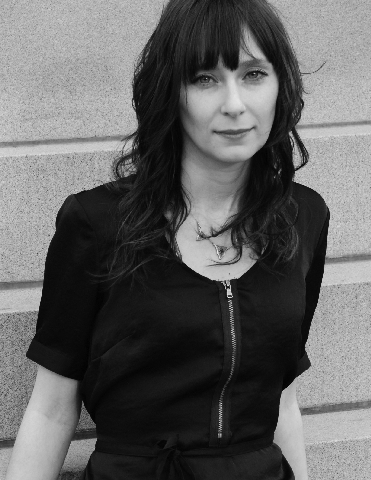Interview with Beth Bachmann
Q: Your book Temper—about a murdered sister and a father who’s suspected of the murder—could have been so different. I can imagine, for example, a book that was more directly confessional, more emotional or even sentimental—but these poems really resist that. Were there particular moves you found yourself avoiding, or tropes you were working against? Put differently, is there anything you were wary of as you were writing these poems?
I knew from the start I was interested in a lyric treatment of violence, so questions of a narrative arc and resolution were, and remain, of little interest to me. It seemed one of the best ways to resist the “directly confessional” was to suppress the I as much as possible and replace it with a lyric you who would stand in a position of witness and interrogation and act as a counterweight to the largely dismissed, though clearly present, lyric I.
Q: One of the most striking things to me about this book is how dense these poems are. They’re mostly quite short—most poems are between eight and ten lines’and they also have sonic intensity and precise focus on a particular scene or moment. I’m interested in the writing process that yields these poems. Do you start longer and chisel away, or is it a process of rewriting to hone in on the exact language and images and sounds the poem needs?
I don’t chisel. They come slowly, word by word. Some days I only get a line or an image or a potential hinge. It’s more like a meditation, I think, or wine-tasting or noting perfume: part maenadic god-intoxication, part practice.
Q: You’ve said that you did research for the book, that you read Army field manuals and books about fishing and so on. How do you approach research as part of your writing process?
I don’t do research, per se, as much as I follow what I’m interested in. Some days are for hunting and gathering. Some for feast.
Q: How do you think about your practice as a writer? For example, do you write for a certain portion of each day? When do you feel that you’ve done your work for the day?
Yesterday, I hadn’t written a poem in two months. This morning, I woke up with a poem begging to be written down. The poem is certainly the product of things I’ve been thinking about lately. I'm not sure where the writing begins and ends. I don’t write every day. I write all the time.
Q: I’m also interested in the structure of the book. It’s in three sections, but I don’t think the book’s arc is precisely narrative. The book also includes several poems with linked titles: “First Mystery of My Father,” “Sorrowful Mystery,” and so on. I think I hear an echo of Catholic catechism in those mysteries. So I wonder if you could talk about the process of structuring the poems as a book, particularly because the book feels so cohesive.
The repetition is meant to make the depiction of violence unrelenting. It’s also a gesture toward what Wilfred Owen, great poet of post-traumatic stress, writes in his poem “Mental Cases”: Always they must see these things and hear them. It’s one way the lyric I reveals itself to the lyric you. I’m interested in vulnerability and power, and sustained states in relation to frenzy.
Q: I’d love for you to talk a little bit about what you’re working on now. Did you set yourself any particular tasks or challenges after writing Temper? You’ve said in other interviews that you’re writing poems now that are getting a bit longer, so I wonder if that’s a deliberate choice, or just a reflection of what the newer poems need.
The new poems are interested in boundaries and restraint. At the moment, there’s more white space. If the fetus wants more room, the body makes more room.
 BETH BACHMANN’s first book, Temper, was selected by
Lynn Emanuel as winner of the AWP Award Series 2008 Donald Hall Prize in Poetry and won the
2010 Kate Tufts Discovery Award. Her poems appear in American Poetry Review,
Black Warrior Review, Kenyon Review, Ploughshares, and Tin House,
among other journals, and have been anthologized in Alice Redux: New Stories of
Alice, Lewis and Wonderland. She holds graduate degrees from Johns Hopkins Writing Seminars
and Concordia University in Montreal and teaches creative writing at Vanderbilt University. Find
her at
BETH BACHMANN’s first book, Temper, was selected by
Lynn Emanuel as winner of the AWP Award Series 2008 Donald Hall Prize in Poetry and won the
2010 Kate Tufts Discovery Award. Her poems appear in American Poetry Review,
Black Warrior Review, Kenyon Review, Ploughshares, and Tin House,
among other journals, and have been anthologized in Alice Redux: New Stories of
Alice, Lewis and Wonderland. She holds graduate degrees from Johns Hopkins Writing Seminars
and Concordia University in Montreal and teaches creative writing at Vanderbilt University. Find
her at